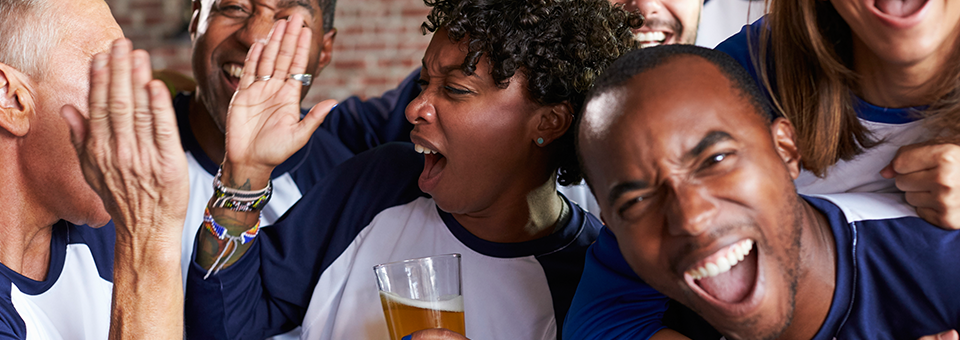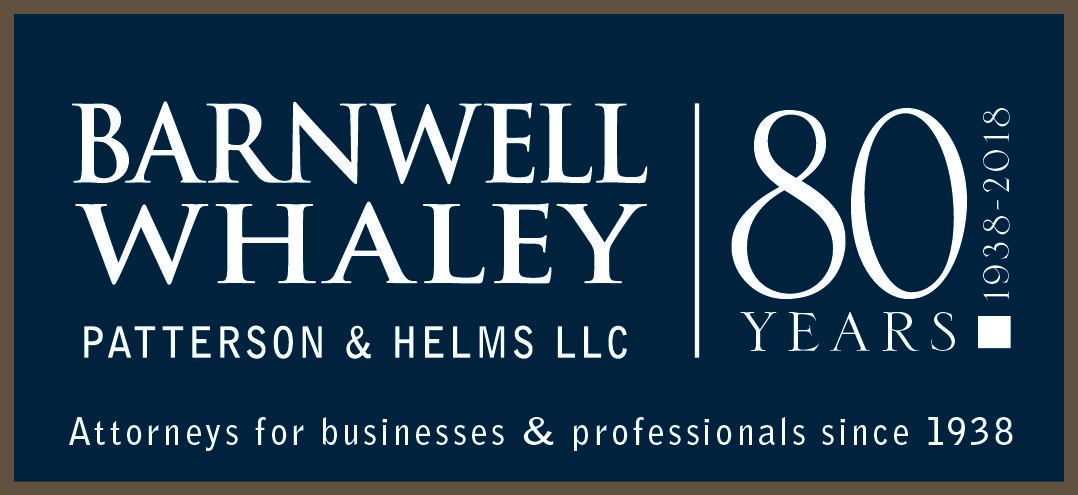
With March Madness in full swing and the beginning of tourist season right around the corner, many bars and restaurants are starting to see an influx of both local and out-of-town patrons shaking off the winter doldrums and enjoying the atmosphere that makes the Carolinas so special.
Whether cheering on their favorite team or letting loose at an outdoor pub, patrons can sometimes be a little rowdy, which is all part of the fun. Sometimes, though, that boisterous behavior can be indicative of a guest who has had too much to drink.
Recognizing the difference and responding appropriately can help a business owner avoid or defend against a potential Dram Shop lawsuit.
In North Carolina, it is unlawful for an alcohol permittee to provide alcohol to a person who is already intoxicated N.C.G.S § 18-305(a). Experienced bartenders and wait staff already know many of the signs of intoxication that raise red flags regarding continued service.
Guests who have red, glassy eyes or a strong odor of alcohol about them may already be intoxicated. Also, patrons who exhibit inappropriate behavior, slurred speech or loss of motor function might need to be served something non-alcoholic, such as water or soda.
Service of alcoholic beverages to someone who is already intoxicated creates the potential for a Dram Shop action if that intoxicated patron injures another person as a result of his intoxication. See Hutchens v. Hankins, 63 NC. App. 1 (1983).
As we have discussed in prior articles, the injured person or a decedent’s estate can sue for damages such as medical bills, pain and suffering, lost wages or even wrongful death, which can quickly add up to significant exposure.
Sometimes it is easy to tell that a patron is intoxicated. In a quiet, uncrowded restaurant in the mid-afternoon, a patron who has had several alcoholic drinks and starts to slur his words or become loud and obnoxious is easily recognizable by the wait staff.
On the other hand, late in the evening, in a crowded bar with lots of other loud, rabid basketball fans watching a Final Four game, such behavior might not be quite as out of place.
There are a number of available training programs, such as TIPS and ServSafe, with suggestions for bartenders and servers on how to recognize intoxicated patrons and respond appropriately in these situations.
Learning to recognize the warning signs of an over-served patron, as well as establishing and enforcing solid guidelines for refusing service to someone who is already intoxicated, are key steps business owners and hospitality industry can take to limit their exposure for Dram Shop lawsuits.
The same statute which prohibits a permittee from selling to an intoxicated person also provides the permittee with discretion to refuse to sell alcohol to anyone (unless based solely on discriminatory grounds).
Business owners in the hospitality industry would be well-advised to have their employees exercise that discretion when necessary to avoid a potential Dram Shop suit.

Christopher M Hinnant is a trial lawyer and member of Barnwell Whaley Patterson & Helms PLLC’s Wilmington, NC office. Hinnant is licensed in both North and South Carolina, and concentrates his practice in civil litigation, including dram shop liability, premises liability and restaurant and hospitality law. He has handled cases in Virginia, North Carolina and South Carolina. A significant portion of his cases involves catastrophic injury and wrongful death. Hinnant also has significant experience with medical malpractice matters, complex commercial litigation and construction matters. To contact Hinnant, call (910) 679-4329 or email him at chinnant@barnwell-whaley.com.
This article originally appeared in the Wilmington Business Journal.
Photo from Thinkstock




